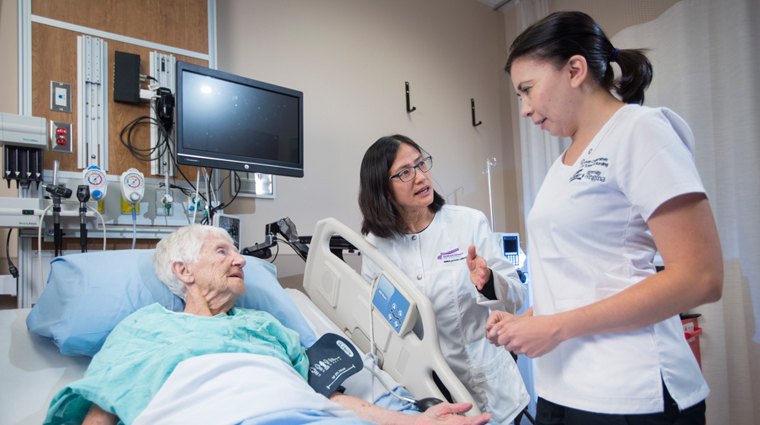
New research from Sask Polytech looks for ways to grow the mentorship program in the School of Nursing
January is national mentorship month and for Natasha Hubbard Murdoch and her colleagues,
it's a great time to talk about the mentorship culture at Saskatchewan Polytechnic,
which is a vital part of the educational experience. A mentorship team has been active
in the Schools of Nursing and Health Sciences for over a decade.
Hubbard Murdoch, along with her nursing faculty colleagues Lynn Sheridan and Emily Harder, recently published an article in the Canadian Journal of Higher Education that assessed the culture of mentorship in the schools of nursing and health sciences at Sask Polytech. Through a survey of faculty and staff, the research team examined perceptions of mentorship in an effort to identify ways to enhance and grow both informal and formal mentorship opportunities and structures.
"By exploring previously determined building blocks and hallmarks of mentorship, the research results were able to highlight specific strengths and gaps within the current mentorship program at Sask Polytech," says Hubbard Murdoch. "We were able to outline some strategies that would help bolster and grow the program."
Some of the identified improvements include stronger financial and human resource support and more education and training about mentorship. This means that evaluation of current mentorship opportunities to match mentee needs is required. Professional development for mentors and mentees builds confidence and creativity.
Their research highlights how those who are mentored have greater satisfaction in the workplace and clearer direction for future academic and professional endeavours. In addition, organizations benefitted through enhanced retention and recruitment.
"The mentorship team at Sask Polytech was designed to help the organization meet specific strategic goals," says Hubbard Murdoch. "There are certainly areas for improvement. But, that is the nature of mentorship work. The culture of a learning organization is always changing. A mentorship culture requires continual assessment and restructuring to meet the needs of the diverse faculty, staff and students."
"We are pleased with the decade of success in this mentorship program," says Sheridan. "That success will continue under the current direction of the mentorship team chair, but also by expanding partnerships from nursing and health sciences to other schools. A mentorship culture benefits our students, our faculty and Sask Polytech."
Published January 2017.
